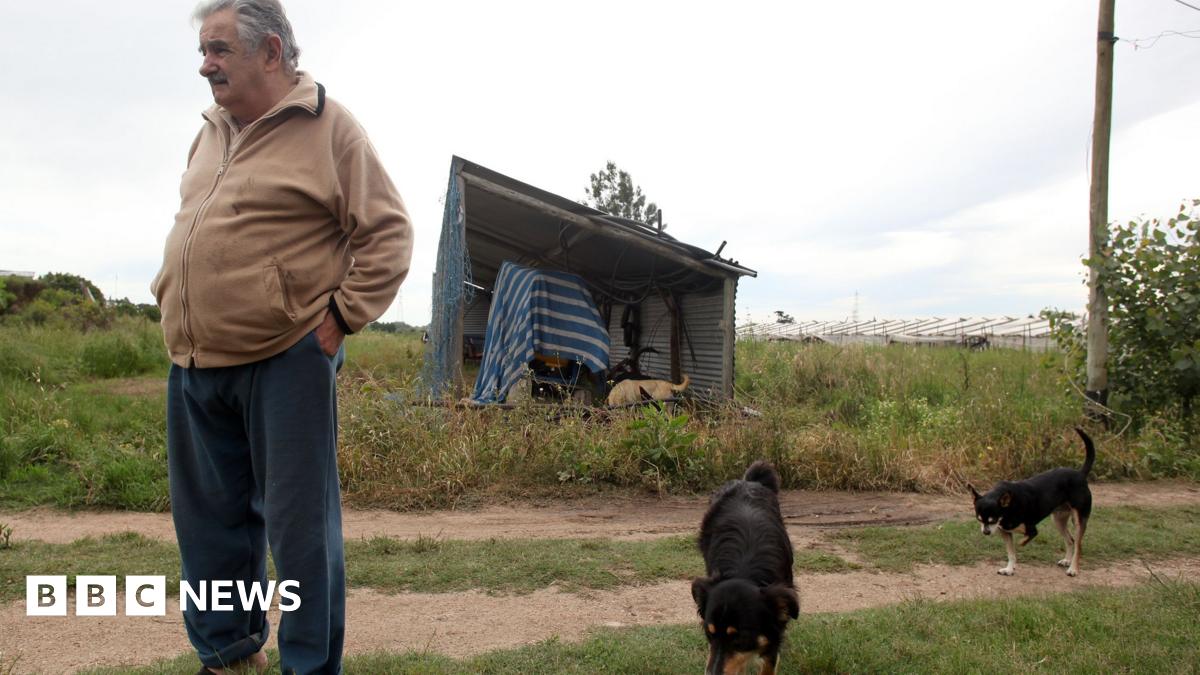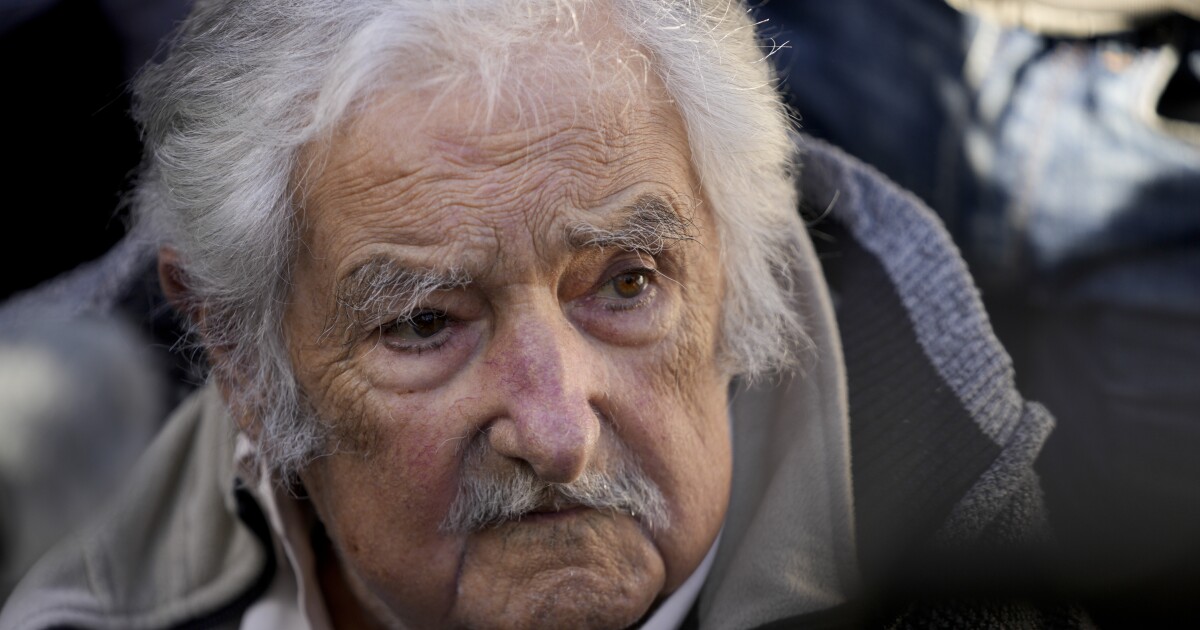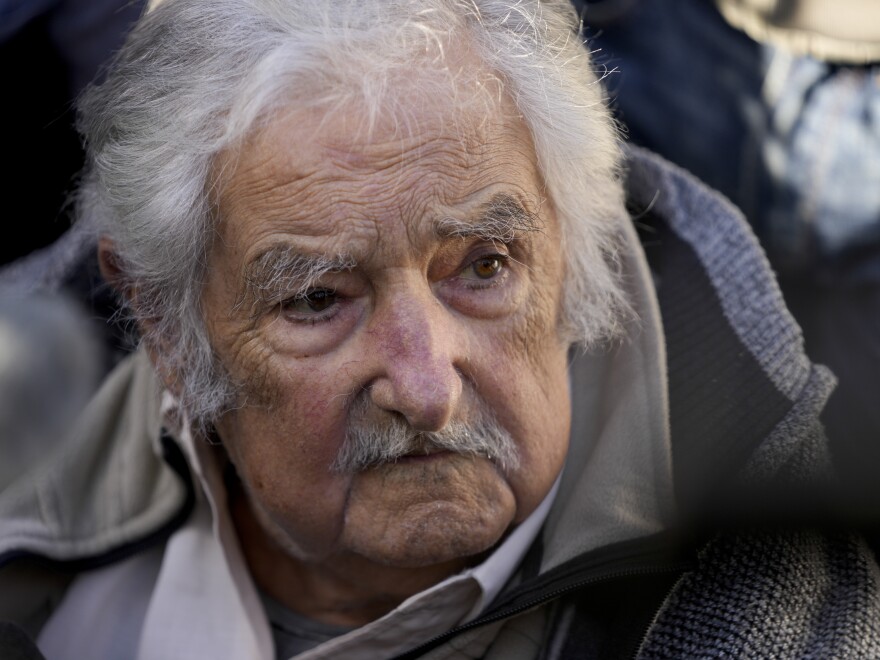## From Humble Roots to Global Icon: The Life and Legacy of Uruguay’s “Poorest President”
He lived simply, driving a beat-up Volkswagen Beetle and giving away most of his presidential salary. He championed social causes and challenged the status quo, earning him the moniker “The World’s Poorest President.” José Mujica, the former leader of Uruguay, has died, leaving behind a legacy that transcends politics and inspires us to reconsider our values. Today, we remember the life and times of this extraordinary man, who proved that true leadership isn’t measured in wealth, but in compassion and courage.

From Guerilla to Politician
A Revolutionary’s Transformation

José Mujica’s journey from guerrilla fighter to president of Uruguay is a remarkable tale of political evolution and transformation. Born in 1935, Mujica witnessed firsthand the stark inequalities that plagued Uruguayan society. Inspired by the Cuban Revolution, he joined the Tupamaros, a leftist revolutionary group, in his youth. The Tupamaros engaged in armed struggle against the Uruguayan government, carrying out bombings, bank robberies, and kidnappings. Their actions, while aimed at achieving social change, ultimately contributed to the country’s descent into a military dictatorship in 1973.
Captured in 1970, Mujica endured brutal torture and solitary confinement. This harrowing experience, however, proved to be a turning point. While imprisoned, Mujica reflected on the Tupamaros’ path, realizing that their violence had yielded unintended consequences. The years in prison also spurred his intellectual growth, allowing him to study political theory and develop a nuanced understanding of the complexities of governance.

The Path to Democracy
Mujica’s release in 1985 coincided with the restoration of democracy in Uruguay. Embracing the democratic process, he entered politics, representing the Broad Front, a leftist coalition. His political career progressed steadily, culminating in his election as president in 2010. Mujica’s presidency marked a significant departure from the traditional political landscape of Uruguay.

Uruguay’s “Pink Tide” Success
An Era of Economic and Social Progress
Mujica’s presidency coincided with a period known as the “Pink Tide,” a wave of left-leaning governments across Latin America. His economic policies, while rooted in socialist principles, focused on sustainable growth and social justice. He implemented progressive taxation measures, redistributing wealth and funding social welfare programs. These initiatives contributed to a significant reduction in poverty rates, improving the lives of millions of Uruguayans.
Investment and Growth
Mujica’s government prioritized investment in education, healthcare, and infrastructure. These investments attracted foreign investment, boosting Uruguay’s economy. The country experienced a sustained period of economic growth, solidifying its position as a regional leader in terms of development and stability.
International Recognition
Uruguay’s success under Mujica’s leadership garnered international recognition. In 2015, The Economist magazine named Uruguay the “Country of the Year,” praising its economic policies, social progress, and commitment to human rights. Mujica’s leadership was seen as a model for other developing nations seeking sustainable and equitable growth.
Progressive Policies and Global Impact
A Leader of Change
Mujica’s presidency was marked by bold and progressive policies that challenged traditional norms and set a precedent for Latin American politics. He legalized abortion, marijuana, and same-sex marriage, reflecting his commitment to individual freedoms and social equality. These progressive stances resonated with a growing segment of the population, particularly young people who sought greater autonomy and social justice.
Regional Influence
Mujica’s policies had a ripple effect throughout Latin America, inspiring similar reforms in other countries. His willingness to challenge conservative norms and embrace progressive values encouraged a broader conversation on social issues and human rights within the region.
International Cooperation
Mujica’s government also prioritized international cooperation, working with regional and global organizations to address issues such as climate change, poverty, and refugee resettlement. He actively sought peaceful solutions to international conflicts, promoting dialogue and diplomacy.
The Unassuming Leader
“The World’s Poorest President”
José Mujica was known for his austere lifestyle, a stark contrast to the opulent lifestyles often associated with world leaders. He shunned the luxurious presidential residence provided by the Uruguayan state, choosing to live on his wife’s modest farm outside Montevideo. The farm, a simple dwelling surrounded by fields, was a world away from the grandeur of official residences. Mujica’s commitment to simplicity extended beyond his living arrangements. He donated about 90% of his monthly salary, equivalent to $12,000 (£7,500), to charity, further solidifying his image as a leader who lived among the people he served.
Living Simply, Leading Daringly
The juxtaposition of Mujica’s unassuming lifestyle and his bold political stances created a compelling image. He was a leader who embraced simplicity yet dared to challenge the status quo. This combination resonated with many, particularly those disillusioned with the corruption and extravagance often associated with political power. Mujica’s actions demonstrated that true leadership did not require ostentatious displays of wealth but rather a profound commitment to serving the needs of the people.
Enduring Legacy
A Symbol of Social Justice
José Mujica’s legacy extends far beyond his presidency. He is remembered as a symbol of social justice, a leader who fought for the rights of the marginalized and championed the cause of equality. His commitment to progressive values and his willingness to challenge traditional norms continue to inspire activists and reformers around the world.
A Leading Voice for Change
Mujica’s impact on Uruguayan politics is undeniable. His embrace of democracy and his commitment to social progress transformed the country, setting a new standard for governance in Latin America. His legacy serves as a reminder that political change is possible even in seemingly entrenched systems. Mujica’s story demonstrates the power of individual conviction and the transformative potential of leadership rooted in compassion and social responsibility.
A Lasting Inspiration
For generations to come, José Mujica will be remembered as a visionary leader who challenged conventional notions of power and wealth. His life and legacy serve as a testament to the enduring belief that true leadership lies in serving the common good and fighting for a more just and equitable world.
Conclusion
José Mujica, the former president of Uruguay, has left a legacy far larger than his humble lifestyle. The “poorest president” in the world, as he was often called, lived a life dedicated to serving his people, prioritizing social justice and environmental sustainability over personal wealth. His presidency, marked by progressive reforms like the legalization of marijuana and same-sex marriage, challenged conventional notions of power and privilege, proving that true leadership doesn’t reside in opulence but in empathy and unwavering commitment to the common good.
Mujica’s passing serves as a poignant reminder that impactful change often comes from unexpected places. His story inspires us to question the systems that prioritize wealth and status, urging us to strive for a world where leadership is defined not by material possessions but by the betterment of society. The echoes of his philosophy will undoubtedly resonate in the halls of power, reminding future generations that true progress lies not in accumulating wealth, but in uplifting the lives of all.
Let us honor Mujica’s memory by embracing his vision of a more equitable and sustainable world, a world where compassion and service are the cornerstones of leadership.